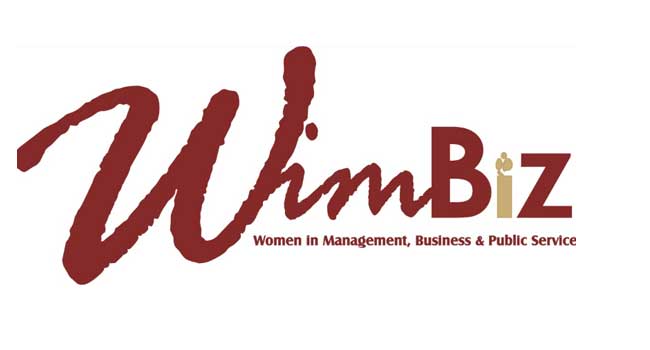‘Nigerian Women Are Capable,’ WIMBIZ Writes FG Over Women’s Exclusion From Varsities Governing Council

![]()
The Board of Trustees and Executive Council of Women in Management, Business & Public Service (WIMBIZ) have written to the Federal Government over the non-inclusion of women in the newly constituted Governing Councils of the University of Lagos (UNILAG), and four other Federal universities in the country.
The other university includes the University of Ibadan (UI) in Oyo State; Obafemi Awolowo University (OAU), Ile-Ife in Osun State, University of Port Harcourt (UNIPORT) in Rivers State, and Nigerian Maritime University, Okerenkoko in Delta State.
According to the letter addressed to the Minister of Education, Mallam Adamu Adamu, the importance of gender inclusion in federal appointments cannot be overemphasized and Nigerian women have continuously proven to be intellectually capable and resourceful nation builders.

WIMBIZ in the letter stressed that The United Nations Gender Equality in the 2030 Agenda for Sustainable Development emphasizes that as long as women are economically & socially disempowered in the world of work, their homes and communities, growth will not be inclusive and we will not succeed in ending poverty.
They therefore called on the presidency to consider and prioritize gender inclusion in subsequent appointments
See the full letter below…
April 12, 2021
Mallam Adamu Adamu
The Honourable Minister
The Federal Ministry of Education
Federal Secretariat Phase III
FCT, Abuja
Nigeria.
Dear Honourable Minister Mallam Adamu,
RE: APPOINTMENT OF COUNCIL MEMBERS OF 5 NIGERIAN UNIVERSITIES; THE NEED FOR GENDER INCLUSION
We write in reference to the recently reconstituted Governing Councils of the University of Ibadan, Obafemi Awolowo University, Ile Ife, University of Port Harcourt, University of Lagos and the Maritime University in Delta State and to draw your urgent attention to the absence of gender diversity in the composition of the Councils. Five (5) members were appointed into each of the Governing Councils and disappointingly, all of the appointees were male.
Nigerian women have continuously proven to be intellectually capable and resourceful nation builders as epitomized by the appointment of Dr. Ngozi OkonjoIweala as the Director-General of the World Trade Organization (WTO).
The 5th Deputy Secretary-General of the United Nations, Mrs. Amina J. Mohammed, the first female Vice-Chancellor in Nigeria, Prof. Grace Adele-Williams, and the first female Head of the Civil Service of the Federation, Engr. Ebele Okeke, FNSE, FICE, OON, CFR are just a few of the many examples of outstanding female leadership we see demonstrated around us.
Sir, the importance of gender inclusion in federal appointments cannot be overemphasized. It underscores the very essence of federal character and mirrors global organizational best practice. Gender Diverse Leadership teams infuse dynamism, deliver long-term stakeholder value & improve employee engagement. In addition, the appointment of Women into these Governing Councils further drives inclusive development and accentuates the role of women in nation-building.
The United Nations Gender Equality in the 2030 Agenda for Sustainable Development emphasizes that as long as women are economically & socially disempowered in the world of work, their homes, and communities, growth will not be inclusive and we will not succeed in ending poverty as stated by Mr. Antonio Guterres the Secretary-General of the United Nations. Nigeria through the office of the President on Sustainable Development Goals (SDG) is committed to all the Goals inclusive of SDG Goal 5 (Gender Equality) and Goal 10 (Reduced Inequalities).
Against this backdrop, we are using this medium to call on the presidency through your good office, to assiduously consider and prioritize gender inclusion in subsequent appointments.
The Board of Trustees and Executive Council of Women in Management, Business & Public Service (WIMBIZ), foremost leadership development and women empowerment Non-Governmental Organization in Nigeria established in 2001, has been impacting the professional lives of women for 20 years. We are collectively committed to continuously working toward the achievement of gender equity and inclusion in Nigeria. We have over the years directly impacted the lives of over 214,000 women through programs that impact, empower, advocate for and connect women to attain leadership positions in business, management, and public service, so that they can contribute significantly to nation-building.
In view of the above, WIMBIZ has established a Women on Boards (WIMBoard) database of about 500 Board ready Nigerian women who are competent, capable, and qualified to serve in Leadership and Board capacities across various sectors of the nation. We can provide at short notice recommendations from this list if required and as the need arises, any time in the future.
In addition to this, we have attached a copy of our 2021 WIMBIZ Gender Inclusiveness Report for your perusal which contains some recommendations to help address the inclusion gap in Nigeria.
We would be pleased to provide additional information on any area that would be of interest to you at your convenience. You can kindly contact the WIMBIZ Executive Council Chairperson, Ngover Ihyembe-Nwankwo directly via email:ngover.ihyembe-nwankwo@wimbiz.org or on phone: 08033150104. Alternatively, you may also contact Hansatu Adegbite, the WIMBIZ Executive Director, via email: hansatuadegbite@wimbiz.org or on phone: 08033138967.
We thank you for receiving our letter and noting our concerns and look forward to working closely with you in furtherance of our collective desire and actions towards the sustainable & inclusive development of our great nation, Nigeria. Please accept our warmest regards and best wishes as we thank you in advance for your cooperation and intervention.
Yours Sincerely,
Mrs. Ifeyinwa Ighodalo Mrs. Ngover Ihyembe-Nwankwo
Chairman, Board of Trustees Chairperson, Executive Council
CC:
- The President of the Federal Republic of Nigeria
- The Vice President of the Federal Republic of Nigeria
- The Minister of Women Affairs & Social Development
- The Minister of Finance, Budget & National Planning
- The Board Chairman, Nigerian Universities Commission
- President of the Senate of Nigeria
- Speaker of the House of Representatives of Nigeria
- The Chief Justice of Nigeria
- Secretary to the Government of the Federation of Nigeria
- The Chief of Staff to the President
- The Deputy Chief of Staff to the President, Office of the Vice President
- Minister of State for Education
- Chairman of the Senate Committee on Women Affairs & Youth Development
- Chairman of the Senate Committee on Tertiary Institutions & TETFUND
- Chairman of the Senate Committee on Sustainable Development Goals
- Chairman of the Senate Committee on Judiciary, Human Rights & Legal Matters
- Chairman of the House Committee on Women Affairs & Social Development
- Chairman of the House Committee on Women in Parliament
- Chairman of the House Committee Tertiary Education
- Chairman of the House Committee on Sustainable Development


